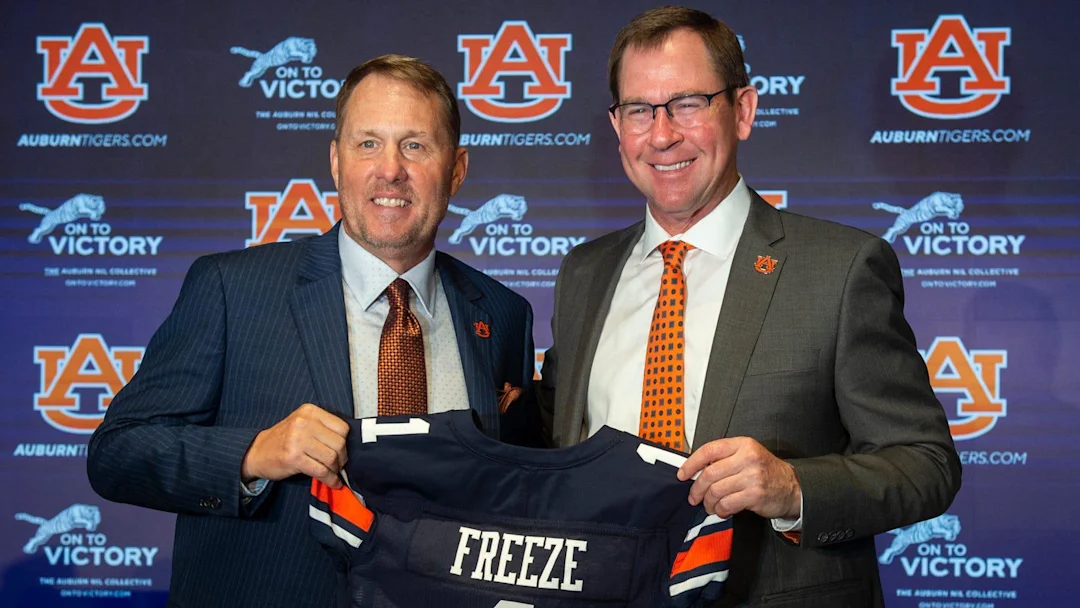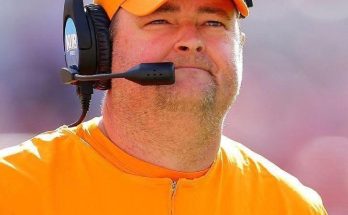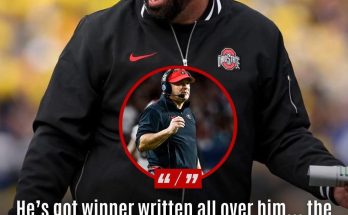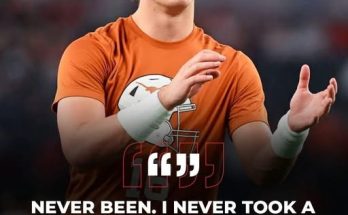Auburn head coach Hugh Freeze has never shied away from speaking his mind, and now, as the landscape of college football undergoes one of its most dramatic transformations, his voice is ringing louder than ever. With the NCAA’s historic shift toward revenue sharing finally taking form, Freeze has offered a firm endorsement of how Auburn is positioning itself in this new era—emphasizing transparency, integrity, and a player-first approach.
“We’re doing things the right way,” Freeze said, speaking with the calm conviction of a man who’s seen the highs and lows of college football. “This is a defining moment not just for programs, but for the people who lead them. And at Auburn, we’re embracing the responsibility that comes with that.”
That responsibility, of course, stems from the NCAA’s recent formal acceptance of revenue sharing between athletic departments and student-athletes. After years of debate, legal battles, and public pressure, college football players are finally on the verge of directly sharing in the immense wealth they help generate. The implications are vast—and the potential for chaos just as real. But in Freeze’s eyes, it’s also a time for reflection, evolution, and, most importantly, doing what’s right.
For a program like Auburn, located in the heart of the Southeastern Conference where football borders on religion, the stakes are uniquely high. The Tigers are not just trying to keep pace with other SEC powerhouses; they’re attempting to carve out a distinct identity in the early days of a college football system that now demands not just competitive success but ethical leadership.
Freeze’s comments come amid a wave of uncertainty across the college football world. While some programs scramble to set up revenue-sharing protocols, others are quietly raising concerns about long-term sustainability and compliance. The blurred line between amateurism and professionalism has been obliterated—and the old guard is still grappling with how to move forward.
But at Auburn, Freeze insists that the foundational principles are already in place.
“Our administration, our athletic department, our boosters—they’re all on the same page,” he said. “We’re committed to ensuring our players are taken care of, not just financially, but holistically. That means mental health, academic success, life after football. The money is part of it, yes—but it’s not the whole story.”
Freeze’s words carry weight, not only because of his title but because of the journey he’s taken to this point. Once one of the brightest minds in college football during his tenure at Ole Miss, Freeze’s career was derailed by scandal and controversy. His return to the SEC via Liberty and ultimately Auburn was seen by some as a gamble. But now, Freeze is attempting to use his platform to elevate conversations beyond X’s and O’s—to lead with principle during a moment of fundamental change.
To understand how Auburn is adapting, it’s worth looking behind the scenes. The athletic department has reportedly developed a detailed framework for revenue sharing that includes input from legal experts, former players, financial advisors, and current student-athletes. The goal is to ensure equity and sustainability—a system where the stars are rewarded, but the benchwarmers and walk-ons aren’t forgotten.
Sources close to the program say Auburn has also begun integrating financial literacy courses into its student-athlete curriculum and is working on creating a mentorship network that connects players with successful alumni in business and other professions. These may sound like small steps in the face of billion-dollar television deals, but Freeze sees them as essential.
“We can’t just throw money at these young men and say ‘figure it out,’” he said. “We owe them more than that. We owe them structure, guidance, accountability—and the truth.”
The truth, Freeze adds, is that not every program will survive this transition. Revenue sharing will widen the gap between the haves and have-nots, both within conferences and across them. Those with deep donor bases and institutional commitment will thrive. Those without will struggle. And in the middle will be programs like Auburn—storied, passionate, resource-rich, but facing stiff competition from the likes of Alabama, Georgia, and LSU.
“It’s about culture,” Freeze said. “You can have all the money in the world, but if you don’t have the right culture, it won’t matter. Our job is to create a culture where young men want to be a part of something bigger than themselves—and where they’re rewarded for that.”
This ethos is beginning to resonate with recruits. Auburn’s 2025 recruiting class has started to show signs of life, with several top prospects citing not just facilities or NIL opportunities, but the “direction of the program” as a key factor. Freeze and his staff have leaned into transparency with families, breaking down exactly how the revenue sharing system works and what players can expect—financially, academically, and socially—upon arriving on campus.
And that clarity is making a difference.
“Hugh Freeze was the only coach who talked about this stuff like it mattered,” said the father of one high school recruit. “He wasn’t just promising NFL contracts. He was talking about tax education, budgeting, and having a life plan. That stood out.”
Still, challenges remain. The NCAA has yet to finalize every detail of its revenue sharing framework, and legal questions around Title IX, tax classifications, and unionization continue to loom. Freeze, for his part, isn’t pretending to have all the answers. But he believes leadership is less about answers and more about asking the right questions—and being willing to listen.
That’s why, Freeze says, Auburn is involving its current players in the revenue-sharing discussions. Team captains have been invited to sit in on committee meetings. Athletic department officials hold regular roundtables with athletes across all sports. And while nothing is perfect, the intent is to build something durable—something that reflects the values Auburn claims to hold dear.
“This is about trust,” Freeze said. “It’s about showing our players that we’re not just using them. That we see them. That we hear them.”
As college football careens into uncharted territory, that trust will be tested. Coaches and athletic directors who once ruled their programs like corporate CEOs must now operate more like community leaders. Freeze, who’s walked through both personal and professional fire, sees that shift as an opportunity—not a burden.
“This is our chance to reset the narrative,” he said. “College football has always been about passion, about community, about building something together. This new era gives us a chance to prove that we still believe in those things.”
And while the dollars will certainly matter, Freeze insists that they won’t define Auburn’s identity in this new world.
“We’re going to win,” he said. “We’re going to compete. But we’re not going to lose who we are in the process.”
For now, Freeze’s message is clear: Auburn is prepared. Auburn is principled. And most of all, Auburn is doing things the right way. Whether that will translate into wins on Saturdays remains to be seen. But in a sport where ethics and excellence are often seen as incompatible, Hugh Freeze and the Tigers are determined to prove otherwise.
dramatic transformations, his voice is ringing louder than ever. With the NCAA’s historic shift toward revenue sharing finally taking form, Freeze has offered a firm endorsement of how Auburn is positioning itself in this new era—emphasizing transparency, integrity, and a player-first approach.
“We’re doing things the right way,” Freeze said, speaking with the calm conviction of a man who’s seen the highs and lows of college football. “This is a defining moment not just for programs, but for the people who lead them. And at Auburn, we’re embracing the responsibility that comes with that.”
That responsibility, of course, stems from the NCAA’s recent formal acceptance of revenue sharing between athletic departments and student-athletes. After years of debate, legal battles, and public pressure, college football players are finally on the verge of directly sharing in the immense wealth they help generate. The implications are vast—and the potential for chaos just as real. But in Freeze’s eyes, it’s also a time for reflection, evolution, and, most importantly, doing what’s right.
For a program like Auburn, located in the heart of the Southeastern Conference where football borders on religion, the stakes are uniquely high. The Tigers are not just trying to keep pace with other SEC powerhouses; they’re attempting to carve out a distinct identity in the early days of a college football system that now demands not just competitive success but ethical leadership.
Freeze’s comments come amid a wave of uncertainty across the college football world. While some programs scramble to set up revenue-sharing protocols, others are quietly raising concerns about long-term sustainability and compliance. The blurred line between amateurism and professionalism has been obliterated—and the old guard is still grappling with how to move forward.
But at Auburn, Freeze insists that the foundational principles are already in place.
“Our administration, our athletic department, our boosters—they’re all on the same page,” he said. “We’re committed to ensuring our players are taken care of, not just financially, but holistically. That means mental health, academic success, life after football. The money is part of it, yes—but it’s not the whole story.”
Freeze’s words carry weight, not only because of his title but because of the journey he’s taken to this point. Once one of the brightest minds in college football during his tenure at Ole Miss, Freeze’s career was derailed by scandal and controversy. His return to the SEC via Liberty and ultimately Auburn was seen by some as a gamble. But now, Freeze is attempting to use his platform to elevate conversations beyond X’s and O’s—to lead with principle during a moment of fundamental change.
To understand how Auburn is adapting, it’s worth looking behind the scenes. The athletic department has reportedly developed a detailed framework for revenue sharing that includes input from legal experts, former players, financial advisors, and current student-athletes. The goal is to ensure equity and sustainability—a system where the stars are rewarded, but the benchwarmers and walk-ons aren’t forgotten.
Sources close to the program say Auburn has also begun integrating financial literacy courses into its student-athlete curriculum and is working on creating a mentorship network that connects players with successful alumni in business and other professions. These may sound like small steps in the face of billion-dollar television deals, but Freeze sees them as essential.
“We can’t just throw money at these young men and say ‘figure it out,’” he said. “We owe them more than that. We owe them structure, guidance, accountability—and the truth.”
The truth, Freeze adds, is that not every program will survive this transition. Revenue sharing will widen the gap between the haves and have-nots, both within conferences and across them. Those with deep donor bases and institutional commitment will thrive. Those without will struggle. And in the middle will be programs like Auburn—storied, passionate, resource-rich, but facing stiff competition from the likes of Alabama, Georgia, and LSU.
“It’s about culture,” Freeze said. “You can have all the money in the world, but if you don’t have the right culture, it won’t matter. Our job is to create a culture where young men want to be a part of something bigger than themselves—and where they’re rewarded for that.”
This ethos is beginning to resonate with recruits. Auburn’s 2025 recruiting class has started to show signs of life, with several top prospects citing not just facilities or NIL opportunities, but the “direction of the program” as a key factor. Freeze and his staff have leaned into transparency with families, breaking down exactly how the revenue sharing system works and what players can expect—financially, academically, and socially—upon arriving on campus.
And that clarity is making a difference.
“Hugh Freeze was the only coach who talked about this stuff like it mattered,” said the father of one high school recruit. “He wasn’t just promising NFL contracts. He was talking about tax education, budgeting, and having a life plan. That stood out.”
Still, challenges remain. The NCAA has yet to finalize every detail of its revenue sharing framework, and legal questions around Title IX, tax classifications, and unionization continue to loom. Freeze, for his part, isn’t pretending to have all the answers. But he believes leadership is less about answers and more about asking the right questions—and being willing to listen.
That’s why, Freeze says, Auburn is involving its current players in the revenue-sharing discussions. Team captains have been invited to sit in on committee meetings. Athletic department officials hold regular roundtables with athletes across all sports. And while nothing is perfect, the intent is to build something durable—something that reflects the values Auburn claims to hold dear.
“This is about trust,” Freeze said. “It’s about showing our players that we’re not just using them. That we see them. That we hear them.”
As college football careens into uncharted territory, that trust will be tested. Coaches and athletic directors who once ruled their programs like corporate CEOs must now operate more like community leaders. Freeze, who’s walked through both personal and professional fire, sees that shift as an opportunity—not a burden.
“This is our chance to reset the narrative,” he said. “College football has always been about passion, about community, about building something together. This new era gives us a chance to prove that we still believe in those things.”
And while the dollars will certainly matter, Freeze insists that they won’t define Auburn’s identity in this new world.
“We’re going to win,” he said. “We’re going to compete. But we’re not going to lose who we are in the process.”
For now, Freeze’s message is clear: Auburn is prepared. Auburn is principled. And most of all, Auburn is doing things the right way. Whether that will translate into wins on Saturdays remains to be seen. But in a sport where ethics and excellence are often seen as incompatible, Hugh Freeze and the Tigers are determined to prove otherwise.



